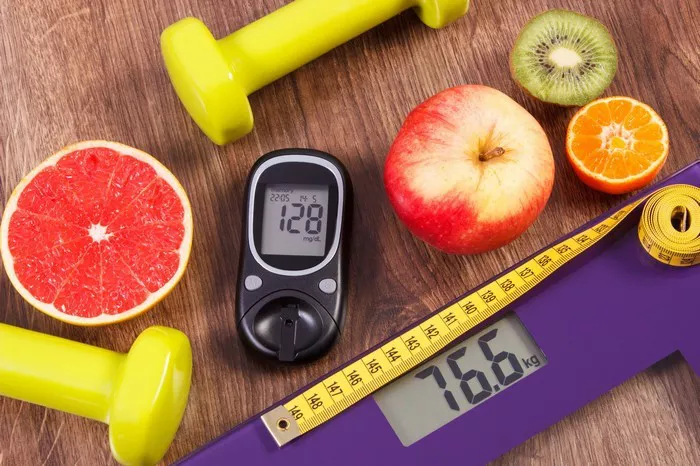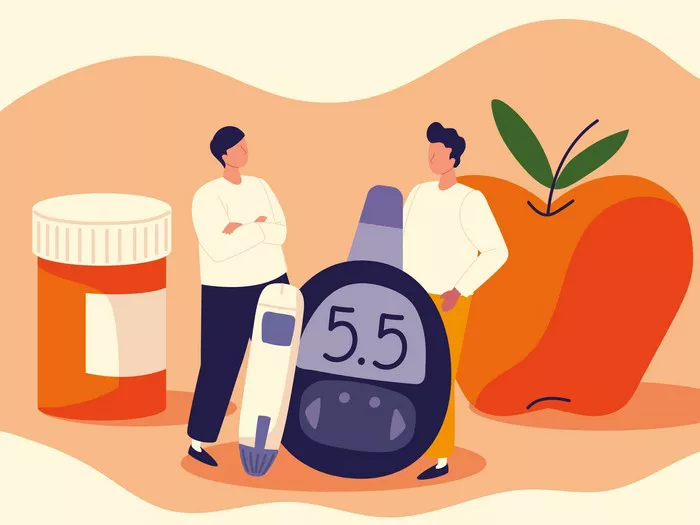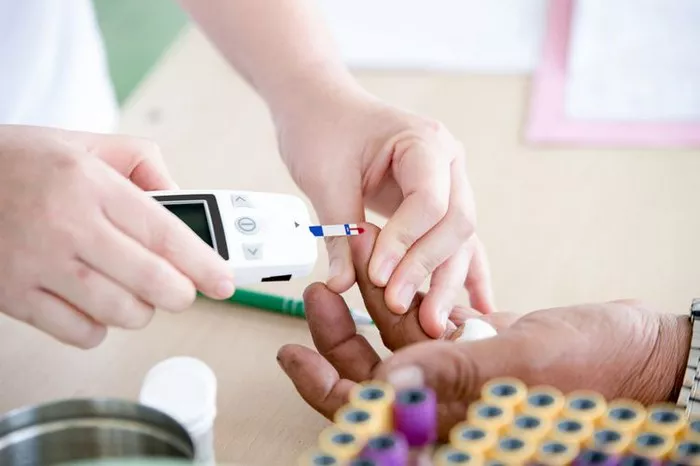Physiological Mechanisms of Hypoglycemia
The body maintains blood glucose levels through a complex interplay of hormones, primarily insulin and glucagon, secreted by the pancreas. Insulin lowers blood glucose by facilitating its uptake into cells, while glucagon raises blood glucose by stimulating glycogen breakdown in the liver. When these mechanisms fail, or when exogenous factors such as medications or inadequate food intake disrupt the balance, hypoglycemia can occur.
Acute hypoglycemia is often caused by:
- Excessive insulin administration: Common in individuals with diabetes, particularly those on insulin therapy.
- Insufficient caloric intake: Skipping meals or not consuming enough carbohydrates.
- Increased physical activity: Without appropriate adjustments in food intake or medication.
- Alcohol consumption: Alcohol can interfere with the liver’s ability to release glucose.
- Certain medications: Including sulfonylureas, which increase insulin release.
Symptoms and Immediate Effects of Acute Hypoglycemia
The initial symptoms of hypoglycemia are often adrenergic and neuroglycopenic:
- Adrenergic Symptoms: These are caused by the release of adrenaline and include sweating, palpitations, tremors, anxiety, and hunger.
- Neuroglycopenic Symptoms: These result from the brain being deprived of glucose and include confusion, drowsiness, blurred vision, headache, and difficulty speaking.
If these symptoms are recognized early and treated promptly with glucose intake (such as consuming sugary foods or drinks), the condition can be quickly reversed. However, failure to treat acute hypoglycemia can lead to severe consequences.
Consequences of Untreated Acute Hypoglycemia
If acute hypoglycemia is not treated, the brain continues to be deprived of its essential fuel, leading to progressive neuroglycopenic symptoms and potentially catastrophic outcomes:
Loss of Consciousness: As glucose levels fall further, the brain’s ability to function becomes increasingly impaired, leading to confusion, seizures, and eventually, loss of consciousness or coma.
Seizures: The lack of glucose can disrupt normal neuronal activity, causing seizures, which can be dangerous and cause further injury or complications.
Coma: Prolonged hypoglycemia can lead to a hypoglycemic coma. The brain enters a state of suspended function to conserve energy, which can be life-threatening if not immediately treated.
Permanent Brain Damage: Prolonged or severe hypoglycemia can cause irreversible brain damage due to the extended deprivation of glucose, leading to cognitive deficits, memory problems, and other neurological impairments.
Death: In the most severe cases, untreated acute hypoglycemia can be fatal. This is particularly a risk if the individual is unable to recognize or respond to symptoms, such as during sleep or in those with hypoglycemia unawareness.
Long-term Implications of Recurrent Hypoglycemia
Even if not immediately fatal, recurrent episodes of acute hypoglycemia can have significant long-term consequences:
Hypoglycemia Unawareness: Frequent hypoglycemic episodes can lead to a condition where the body becomes less sensitive to the warning signs of low blood sugar. This makes future episodes more dangerous because they can occur without the usual symptoms, increasing the risk of severe hypoglycemia.
Autonomic Neuropathy: Chronic hypoglycemia can damage the autonomic nervous system, leading to autonomic neuropathy, which can affect heart rate, blood pressure, digestion, and other involuntary bodily functions.
Psychological Impact: Living with the constant fear of hypoglycemia can lead to anxiety and depression. The need to constantly monitor blood glucose levels and the potential for severe episodes can significantly affect quality of life.
Reduced Quality of Life: The need for constant vigilance, dietary restrictions, and the fear of severe hypoglycemic episodes can significantly reduce the quality of life for individuals with diabetes.
Preventing Acute Hypoglycemia
Preventing acute hypoglycemia involves a combination of careful monitoring, education, and lifestyle adjustments:
Regular Monitoring: Frequent blood glucose monitoring helps individuals detect and treat hypoglycemia early. Continuous glucose monitors (CGMs) can provide real-time data and alerts for impending hypoglycemia.
Education and Awareness: Individuals with diabetes and their caregivers should be educated about the symptoms of hypoglycemia, how to treat it, and how to prevent it. This includes understanding how to adjust insulin doses based on food intake and physical activity.
Dietary Management: Eating regular meals and snacks that include carbohydrates can help maintain stable blood glucose levels. Carbohydrate counting and meal planning are crucial for individuals on insulin therapy.
Medication Management: Proper use of diabetes medications is essential. This may involve adjusting doses based on blood glucose readings, activity levels, and dietary intake.
Emergency Preparedness: Individuals at risk for hypoglycemia should always carry fast-acting glucose sources (such as glucose tablets or gel) and have a glucagon emergency kit available.
Medical Interventions and Support
For those who experience frequent or severe hypoglycemia, additional medical interventions may be necessary:
Adjusting Diabetes Treatment Plans: Healthcare providers may need to adjust the individual’s diabetes treatment plan to reduce the risk of hypoglycemia. This can include modifying insulin regimens, switching medications, or using newer insulin formulations with a lower risk of hypoglycemia.
Continuous Glucose Monitoring (CGM): CGM devices can provide real-time glucose readings and trend data, helping individuals and healthcare providers make more informed treatment decisions. CGMs can also alert users to impending hypoglycemia, allowing for prompt intervention.
Insulin Pumps: Insulin pumps can deliver more precise doses of insulin and can be programmed to reduce insulin delivery in response to dropping glucose levels. Some advanced pumps are integrated with CGMs and can automatically adjust insulin delivery to prevent hypoglycemia.
Professional Support and Counseling: Working with a diabetes educator, dietitian, or counselor can provide valuable support and strategies for managing diabetes and preventing hypoglycemia. Psychological support can also help address anxiety and fear related to hypoglycemia.
See also: What’s the Link Between IGF-1 and Hypoglycemia
Conclusion
Acute hypoglycemia is a medical emergency that requires prompt recognition and treatment to prevent severe and potentially fatal complications. The immediate consequences of untreated hypoglycemia, such as loss of consciousness, seizures, and coma, underscore the critical need for awareness and preparedness among individuals with diabetes and their caregivers.
Long-term strategies for preventing hypoglycemia include regular blood glucose monitoring, dietary management, medication adjustments, and the use of advanced diabetes technologies like CGMs and insulin pumps. Education and support from healthcare providers are also essential in helping individuals manage their diabetes effectively and reduce the risk of hypoglycemia.
Ultimately, the goal is to maintain stable blood glucose levels to ensure the safety and well-being of individuals with diabetes, allowing them to lead healthy and fulfilling lives without the constant threat of hypoglycemia.
Related topics:
What’s The Relationship Between Adrenal Insufficiency And Hypoglycemia



























